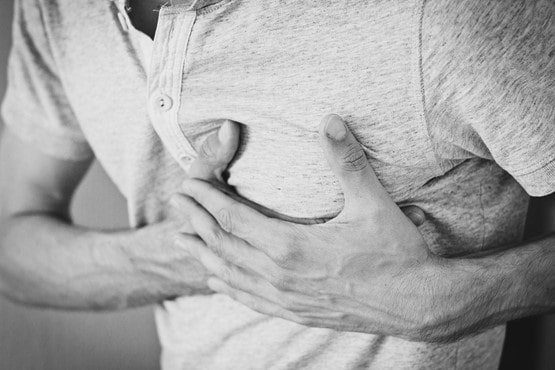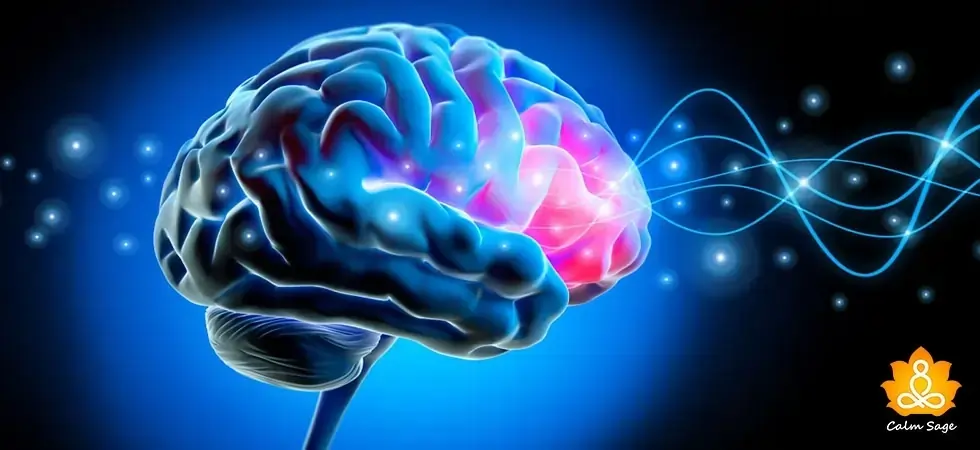Understanding Cardiophobia (The Fear of Heart Attack) And How to Overcome It

There are a lot of things to fear in your life and one of them is your heart, or rather, the thought of it not beating life into you anymore. It’s a thought that can scare anyone, and more so when it becomes problematic enough to disrupt your day-to-day life. At this point, the thought of your heart not beating anymore can become a phobia, also known as cardiophobia.
Cardiophobia is often referred to as the fear of a heart attack or the fear of having heart-related health issues. It’s a psychological condition that can greatly impact your quality of life and while it’s natural to have concerns about your health, cardiophobia can take these concerns a step further, causing severe distress and anxiety.
There could be various reasons that can trigger the fear of a heart attack and believe it or not, while cardiophobia might not be a widely known anxiety disorder or irrational fear, it’s something a lot of people struggle with around the world.
Let’s understand what cardiophobia is, the fear of heart attacks, what causes it, and how you can overcome it.
What is Cardiophobia?

Cardiophobia is an irrational fear of heart-related problems, even when there is nothing to indicate a heart-related issue. People with this irrational fear obsessively worry about having a heart attack, heart palpitations, or other cardiac symptoms, despite having a healthy heart.
In a 1992 study on cardiophobia, it was found that a person with this fear focuses excessively on their heart during stressful times which later causes psychosomatic symptoms such as a racing heart rate, chest pains, and more.
If you have this phobia, then you may seek medical advice frequently and reassurance from professionals that everything is OK. However, even after getting said reassurance, you might continue to fear and worry about having heart-related problems.
Cardiophobia should not be confused with illness anxiety disorder. Illness anxiety disorder is a condition where one has an intense worry about becoming ill, despite them being physically healthy. If you have a fear of heart-related issues or heart attacks specifically, then you might be experiencing one or more symptoms that might feel or look like a heart attack. This can be called somatic symptom disorder.
Symptoms of Cardiophobia
According to the DSM, 5th edition, cardiophobia is categorized under “specific phobias” or a sub-category of anxiety disorder. Some of the common cardiophobia symptoms can include;
- Constant and intrusive worrying
- Sweating
- Rapid heart rate
- Trembling
- Shortness of breath
- Avoidance behaviors such as exercising
- Feeling hyper-aware
- Trouble concentrating
- Trouble maintaining healthy relationships
What Causes Cardiophobia?

Some most common factors that can contribute to cardiophobia include;
- Having experienced previous heart-related trauma such as a heart attack or losing someone close to you to heart-related issues
- Having generalized anxiety disorder, where you excessively worry about your health
- Having a family history of heart problems
- Having high levels of anxiety and stress can also worsen worrying and existing fears
How is Cardiophobia Different From Genuine Heart Problems?
When you experience cardiac anxiety, it activates the sympathetic nervous system aka the “flight-or-fight” response, a natural reaction to perceived threat. However, for someone with a phobia or an anxiety disorder, this simple reaction can become hyperactive and might even trigger a panic attack.
Between the physical symptoms of panic attacks and heart attacks, there are some overlaps such as :
- Experiencing tightness in the chest,
- Shortness of breath
- Lightheadedness
- Sweating
- Shaking
- Rapid heartbeat
- Dizziness
- Feeling faint
All of these symptoms can indicate a heart attack but at the same time, can also be a symptom of the “flight-or-fight” response being activated. These similarities between the two can cause significant distress if you have cardiophobia and can create a distressing cycle. The more anxious you are, the more likely you are to experience physical symptoms such as a racing heart, which in turn, can worsen your fear response.
Without medical intervention, it can be hard to say if you’re experiencing cardiac anxiety or a genuine heart-related issue. If you feel like you’re having a heart attack, then it’s important to seek immediate medical assistance or you can reach out to a professional mental health advisor to understand the true condition.
Are There Ways to Treat Cardiophobia?

Yes! With the right interventions and approaches, it is possible to treat and get help for cardiophobia. Here are some treatment options for cardiophobia;
- Cognitive Behavioral Therapy (CBT): CBT can help you identify and challenge irrational thoughts and replace them with more realistic and positive beliefs.
- Exposure Therapy: This therapy approach involves gradually exposing you to situations that trigger your fears and help you build tolerance and reduce anxiety related to your fear.
- Medications: In some severe cases, a doctor may prescribe anti-anxiety or antidepressant medications to help you manage severe symptoms of cardiophobia or anxiety.
How to Overcome Cardiophobia?
1. Relaxation Techniques:
Even techniques such as deep breathing, meditation, and progressive muscle relaxation (PMR) can all help you manage anxiety symptoms and keep the fear response at bay.
2. Grounding Techniques:
You can also practice grounding techniques like 5-4-3-2-1 grounding, listening to calming music, etc. to manage cardiac anxiety symptoms.
3. Diaphragmatic Breathing:
Another way to calm anxiety response is to practice diaphragmatic breathing. This breathing exercise can help soothe the panic response and keep you from spiraling into a panic or anxiety attack.
Seeking Help For Cardiophobia
If you or your loved one is struggling with cardiophobia, then you can seek help in the following ways;
- Reach out to a mental health professional, such as a psychologist or psychiatrist, who specializes in anxiety disorders or treating irrational fears.
- Join support groups that can provide a sense of community and empathy as well as the opportunity to learn and share experiences with others facing similar challenges and fears.
- Learn about anxiety disorders and how they relate to heart health to better understand your condition.
Wrapping Up…
Cardiophobia is an irrational fear of having a heart attack and while it might not sound too threatening, it can have a significant impact on your well-being and overall health. With effective treatments, timely interventions, and support, you can learn to cope with and manage the symptoms of anxiety and panic that often accompany cardiophobia, the fear of heart attacks.
I hope this blog helped you understand what cardiophobia is, the fear of a heart attack or other heart-related problems, and how you can treat it and manage the anxiety-like symptoms it often comes with. Let me know your thoughts in the comments below.
Take Care!




















